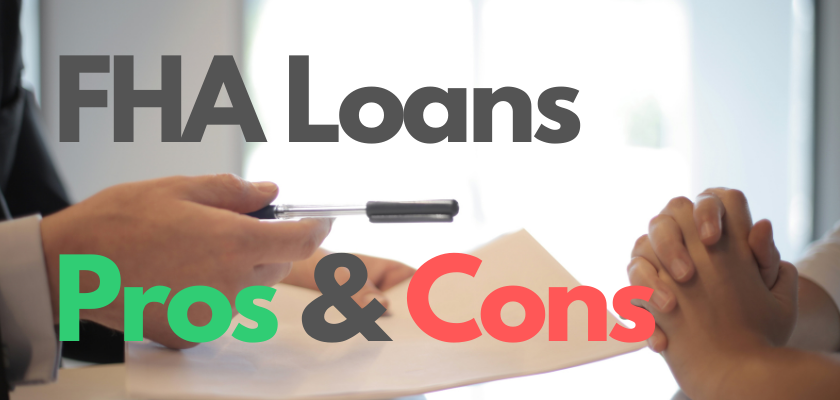An Federal Housing Administration ( FHA ) loan is a mortgage insured by the Federal Housing Administration. Allowing down payments as low as 3.5% with a 580 FICO, FHA loans are helpful for buyers with limited savings or lower credit scores.
What is FHA Loans ?
An FHA loan is a mortgage insured by the Federal Housing Administration. With a minimum 3.5% down payment for borrowers with a credit score of 580 or higher, FHA loans are popular among first-time home buyers who have little savings or have credit challenges.
In 2020, you can borrow up to 96.5% of the value of a home with an FHA loan. This means you’ll need to make a down payment of 3.5%. You’ll need a credit score of at least 580 to qualify. If your credit score falls between 500 and 579, you can still get an FHA loan as long as you can make a 10% down payment. With FHA loans, your down payment can come from savings, a financial gift from a family member, or a grant for down-payment assistance.
The FHA insures mortgages issued by lenders, like banks, credit unions and nonbanks. That insurance protects lenders in case of default, which is why FHA lenders are willing to offer favorable terms to borrowers who might not otherwise qualify for a home loan. Only an FHA-approved lender can issue an FHA-insured loan.
Because of their many benefits, FHA loans are popular with first-time homebuyers.

History of the Federal Housing Administration (FHA) Loan
Congress created the Federal Housing Administration in 1934 during the Great Depression. At that time, the housing industry was in trouble: Default and foreclosure rates had skyrocketed, loans were limited to 50% of a property’s market value and mortgage terms—including short repayment schedules coupled with balloon payments—were difficult for many homebuyers to meet. As a result, the U.S. was primarily a nation of renters, and only approximately 40% of households owned their homes.
In order to stimulate the housing market, the government created the FHA. Federally-insured loan programs that reduced lender risk made it easier for borrowers to qualify for home loans. The homeownership rate in the U.S. steadily climbed, reaching an all-time high of 69.2% in 2004, according to research from the Federal Reserve Bank of St. Louis. As of the second quarter of 2020, it’s at 67.9%.
Federal Housing Administration (FHA) Loans vs. Conventional Mortgages
It’s easier to qualify for an FHA loan than for a conventional loan, which is a mortgage that isn’t insured or guaranteed by the federal government.
-
FHA loans allow for lower credit scores than conventional loans and, in some cases, lower monthly mortgage insurance payments.
-
FHA rules are more liberal regarding gifts of down payment money from family, employers or charitable organizations.
-
FHA loans may involve closing costs that aren’t required by conventional loans.
Qualifying for an FHA Loan
Your lender will evaluate your qualifications for an FHA loan as it would any mortgage applicant. However, instead of using your credit report, a lender may look at your work history for the past two years (as well as other payment-history records, such as utility and rent payments). As long as you’ve re-established good credit, you can still qualify for an FHA loan if you’ve gone through bankruptcy or foreclosure. It’s important to keep in mind that, as a general rule of thumb, the lower your credit score and down payment, the higher the interest rate you’ll pay on your mortgage.
What are the pros and cons of FHA loans?
Even if your credit score and monthly budget leave you without other choices, be aware that FHA loans involve some trade-offs.
Benefits of FHA loans:
-
Lower minimum credit scores than conventional loans.
-
Down payments as low as 3.5%.
-
Debt-to-income ratios as high as 50% allowed.
Disadvantages of FHA loans:
-
FHA mortgage insurance lasts the full term of the loan with a down payment of less than 10%.
-
Property must meet strict health and safety standards.
-
No jumbo loans: The loan amount cannot exceed the conforming limit for the area.
Even though the FHA sets standard requirements, FHA-approved lenders’ requirements may be different.
FHA interest rates and fees also vary by lender, so it’s important to comparison shop. Getting a mortgage preapproval from more than one lender can help you compare the total cost of the loan.
The Bottom Line
While an FHA loan may sound great, it’s not for everybody. It won’t help those with credit scores less than 500. For those with bad credit, a personal loan may be a better option to consider. On the opposite end, aspiring homeowners who can afford a large down payment may be better off going with a conventional mortgage. It’s more likely that they’ll be able to save more money in the long run through the lower interest rates and mortgage insurance premium that conventional lenders provide.
FHA loans were not created to help potential homeowners who are shopping on the higher end of the price spectrum. Rather, the FHA loan program was created to support low- and moderate-income home buyers, particularly those with limited cash saved for a down payment.”
When you buy a home, you may be responsible for additional out-of-pocket expenses, such as loan origination fees, attorney fees, and appraisal costs. One of the advantages of an FHA mortgage is that the seller, home builder, or lender may pay some of these closing costs on your behalf. If the seller is having a hard time finding a buyer, it’s possible they might offer to help you out at the closing as a way of incentivizing the deal.

